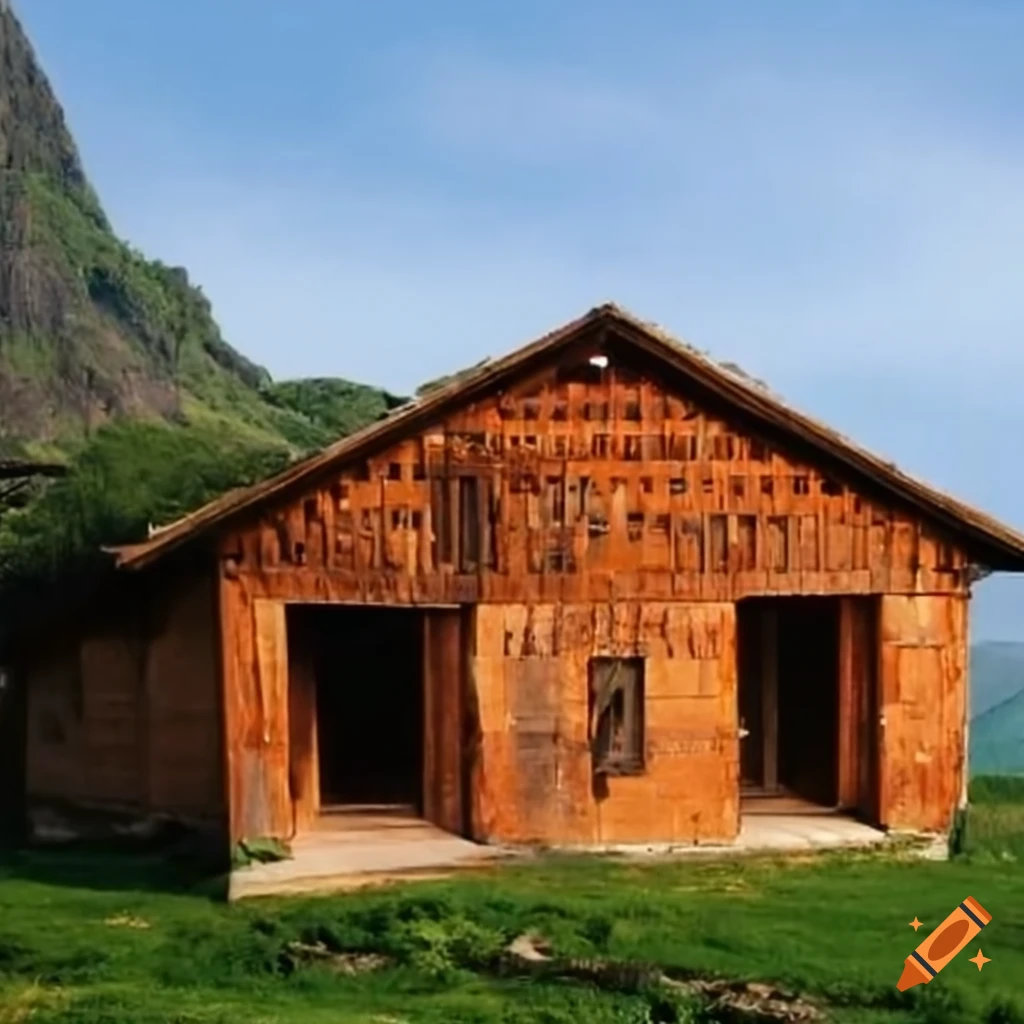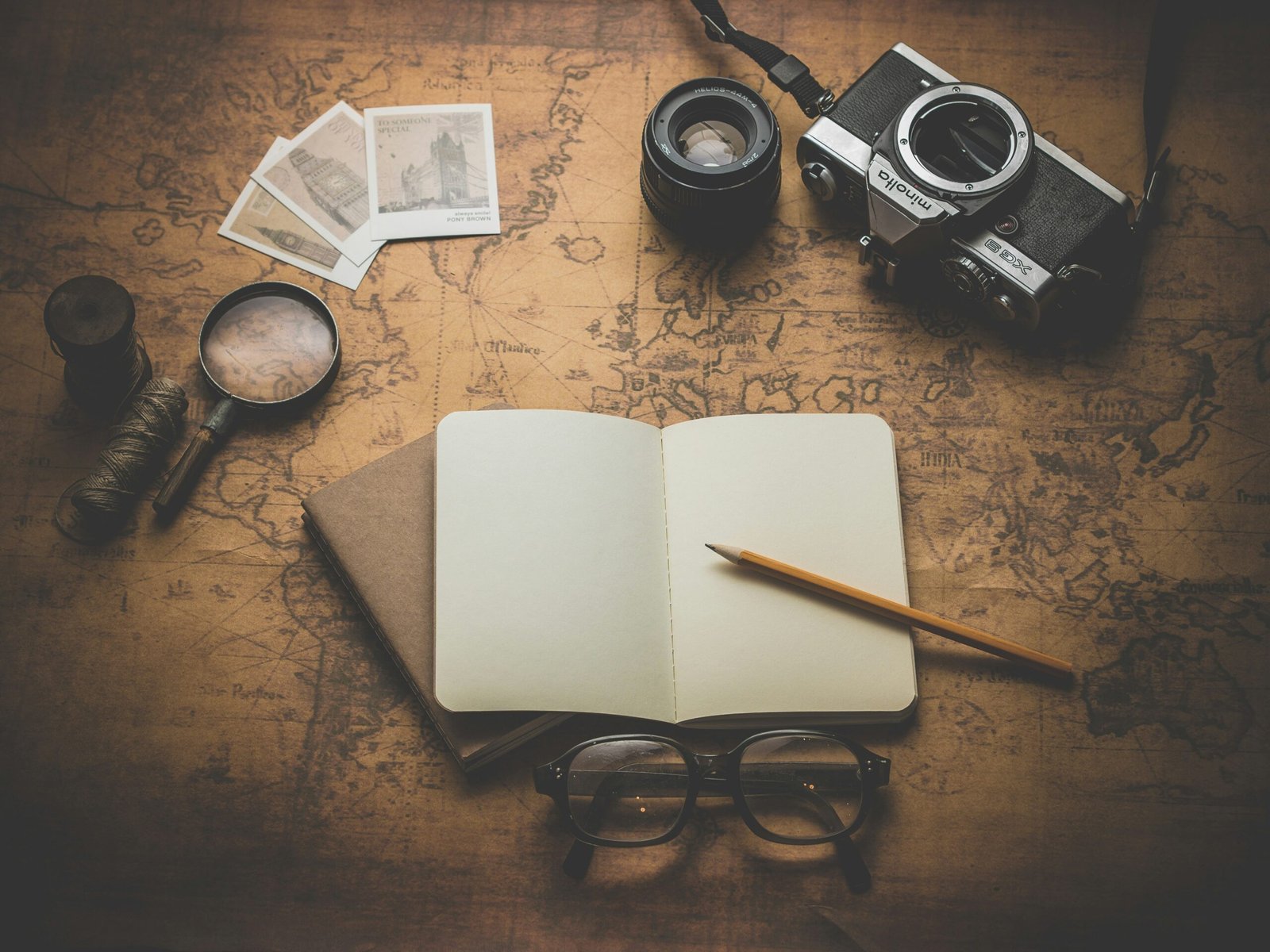Introduction to Solo Travel
Solo travel is increasingly becoming a popular choice among adventurers seeking unique experiences and personal growth. The concept of traveling alone allows individuals to immerse themselves fully in their journey, unencumbered by the constraints of group dynamics or shared itineraries. This form of travel offers unparalleled freedom and flexibility, enabling travelers to craft their own schedules, explore at their own pace, and engage deeply with their surroundings.
One of the most compelling aspects of solo travel is the ability to make spontaneous decisions. Without the need to coordinate with others, solo travelers can seize opportunities as they arise, whether it’s taking a detour to an unexpected attraction or spending an extra day in a captivating location. This autonomy fosters a sense of empowerment and self-reliance, as travelers navigate new environments and cultures independently.
While the rewards of solo travel are numerous, it’s important to acknowledge the potential challenges. Traveling alone can sometimes evoke feelings of loneliness or vulnerability, particularly in unfamiliar settings. However, these challenges often lead to personal growth, as individuals learn to overcome obstacles and develop resilience. Additionally, solo travelers frequently report heightened social interactions, as they are more likely to engage with locals and fellow travelers, forging meaningful connections along the way.
Moreover, solo travel offers a unique opportunity for introspection and self-discovery. Without the distractions of familiar company, travelers can reflect on their experiences, gain new perspectives, and cultivate a deeper understanding of themselves. This journey of self-exploration is often cited as one of the most profound rewards of traveling alone.
As solo travel continues to gain popularity, it opens up a world of possibilities for those willing to embrace the adventure. Whether you’re seeking freedom, personal growth, or simply a new way to experience the world, embarking on a solo journey can be an incredibly enriching and transformative experience.
Planning Your Solo Adventure
Embarking on a solo adventure can be an exhilarating experience, but thorough planning is essential to ensure a successful trip. The first step in planning your independent travel is researching destinations that align with your interests and comfort level. Consider factors such as safety, cultural attractions, and the overall environment. Resources like travel blogs, forums, and guidebooks can provide valuable insights and recommendations from fellow travelers.
Once you have selected your destination, the next step is to create a detailed itinerary. Start by listing the key attractions and activities you wish to experience. Organize your schedule to balance sightseeing, relaxation, and spontaneous exploration. A well-structured itinerary not only maximizes your time but also provides a sense of direction, reducing the likelihood of feeling overwhelmed.
Booking accommodations in advance is another crucial aspect of planning your solo trip. Research various lodging options, including hotels, hostels, and vacation rentals, considering factors such as location, price, and amenities. Websites like Booking.com, Airbnb, and Hostelworld offer comprehensive reviews and ratings to help you make informed decisions. Securing your accommodations ahead of time ensures you have a safe and comfortable place to stay, providing peace of mind as you embark on your journey.
Understanding local customs and laws is equally important for a smooth solo adventure. Familiarize yourself with cultural norms, dress codes, and etiquette to show respect and avoid unintentional offenses. Additionally, research the local laws, including visa requirements, health regulations, and any travel advisories. Being well-informed about these aspects enhances your safety and helps you navigate your destination with confidence.
In summary, meticulous preparation is the key to a rewarding solo travel experience. By researching destinations, crafting a well-balanced itinerary, booking suitable accommodations, and understanding local customs and laws, you set the stage for an enjoyable and stress-free journey. Proper planning not only enriches your travel experience but also empowers you to embrace the freedom and excitement of independent travel.
Safety Tips for Independent Travelers
Embarking on a solo adventure can be an exhilarating experience, but safety should always be a top priority for independent travelers. One of the fundamental steps to ensure your safety is to share your travel itinerary with someone you trust. By keeping a friend or family member informed about your travel plans, including your accommodation details and daily activities, you can have a reliable point of contact in case of emergencies.
Avoiding risky areas is another crucial aspect of staying safe during your travels. Research your destination thoroughly and identify any neighborhoods or regions that are known for high crime rates or other dangers. Trust your instincts and steer clear of places that feel unsafe. It’s also wise to avoid traveling alone at night and to stick to well-lit and populated areas.
Being aware of your surroundings can significantly enhance your safety. Pay attention to the people around you and be cautious of anyone who seems overly interested in your actions. Avoid distractions such as wearing headphones or being engrossed in your phone, as these can make you an easy target for pickpockets or other criminals. Instead, stay alert and maintain a confident demeanor.
Health precautions are equally important for solo travelers. Ensure you have adequate travel insurance that covers medical emergencies. Carry a basic first-aid kit and any necessary medications. Familiarize yourself with the local healthcare facilities and know how to seek medical assistance if needed. Staying hydrated, eating well, and getting enough rest can also help you stay healthy and alert.
Securing your personal belongings is vital to avoid theft and loss. Use a money belt or a secure bag to keep your valuables close to your body. Avoid displaying expensive items such as jewelry or electronics in public. Utilize hotel safes to store important documents and extra cash. Additionally, make copies of your passport, travel insurance, and other essential documents, and keep them separate from the originals.
By following these safety tips, independent travelers can enjoy their solo adventures with greater peace of mind, ensuring a memorable and secure journey.
Making the Most of Your Solo Experience
Embarking on a solo adventure offers a unique opportunity to deeply connect with your surroundings and immerse yourself in new cultures. One of the most enriching aspects of solo travel is the freedom it provides to explore at your own pace. Without the need to coordinate schedules or compromise on activities, you can tailor your itinerary to match your interests and whims, creating a truly personalized experience.
Connecting with locals is an essential part of enriching your solo travel journey. Engaging with residents can provide insights into the local way of life, hidden gems, and authentic experiences that aren’t typically found in guidebooks. Consider staying in homestays, attending local events, or simply striking up conversations in cafes and markets. These interactions not only enhance your travel experience but also foster a sense of community and belonging, even when you’re miles away from home.
Participating in group activities is another excellent way to make the most of your solo adventure. Many destinations offer group tours, classes, or workshops that cater to travelers. These activities can range from cooking classes and guided hikes to language lessons and cultural performances. Joining such groups not only allows you to learn new skills and gain knowledge about the place but also provides an opportunity to meet fellow travelers and potentially form lasting friendships.
Solo travel is also a powerful catalyst for personal growth and self-discovery. Navigating new environments on your own encourages independence, resilience, and problem-solving skills. It allows you to step out of your comfort zone, face challenges head-on, and emerge with a stronger sense of self. The experiences and memories you create during your solo journey become invaluable lessons that shape your perspective on life and the world around you.
Ultimately, making the most of your solo experience involves embracing the freedom, connecting with locals, participating in group activities, and reflecting on the personal growth it fosters. Solo travel is not just about the destinations you visit but also about the journey within yourself.
Overcoming Common Solo Travel Challenges
Traveling solo can be an exhilarating experience, but it is not without its challenges. Common issues faced by solo travelers include loneliness, language barriers, and cultural differences. Understanding these obstacles and learning how to navigate them can significantly enhance the solo travel experience.
Loneliness is a frequent concern for those embarking on solo adventures. One effective strategy to combat this is to engage in social activities, such as joining group tours or staying in hostels where meeting other travelers is encouraged. Additionally, participating in local events or taking part in classes, such as cooking or dance, can offer opportunities to connect with both locals and fellow travelers. Leveraging social media platforms and travel forums can also help in finding travel buddies or local contacts.
Language barriers can pose a significant challenge, especially in countries where English is not widely spoken. To mitigate this, learning basic phrases in the local language can be immensely helpful. Mobile translation apps can also serve as valuable tools for communication. Furthermore, carrying a pocket dictionary or phrasebook can be practical for on-the-spot translation needs. Immersing oneself in the local culture by practicing the language with native speakers can not only bridge communication gaps but also enhance the overall travel experience.
Cultural differences often present unique challenges, requiring travelers to be adaptable and respectful. Researching the local customs, traditions, and social norms of the destination prior to departure is crucial. This knowledge enables travelers to behave appropriately and avoid misunderstandings. Additionally, being open-minded and showing respect for different ways of life can foster positive interactions. Engaging with locals and asking for advice on cultural etiquette can also provide valuable insights.
By addressing these common challenges head-on, solo travelers can turn potential obstacles into opportunities for growth and enrichment. Preparedness and adaptability are key to enjoying a fulfilling and memorable independent travel experience.
Budgeting and Managing Finances
Embarking on a solo adventure requires meticulous financial planning to ensure a seamless and enjoyable journey. Budgeting is the cornerstone of independent travel, allowing you to allocate resources effectively and avoid unforeseen financial stress. Begin by setting a clear budget that outlines your expected expenses, including transportation, accommodations, food, activities, and emergency funds. This will help you stay on track and make informed decisions during your travels.
Finding affordable accommodations is crucial for managing your travel budget. Consider options such as hostels, guesthouses, and vacation rentals, which often provide comfortable lodgings at a fraction of the cost of hotels. Websites and apps like Airbnb, Booking.com, and Hostelworld can be invaluable tools in comparing prices and reading reviews from fellow travelers. Additionally, consider staying in less touristy areas where prices are typically lower, yet still offer a rich cultural experience.
Eating on a budget is another essential aspect of financial management while traveling solo. Opt for local markets, street food vendors, and grocery stores to experience authentic cuisine without breaking the bank. Preparing your own meals can also be a cost-effective option, especially if your accommodation provides kitchen facilities. When dining out, seek recommendations from locals to find hidden gems that offer delicious meals at reasonable prices.
Utilizing travel rewards programs can significantly reduce your expenses. Many credit cards offer points or miles that can be redeemed for flights, accommodations, and other travel-related costs. Sign up for loyalty programs with airlines, hotels, and car rental companies to accrue benefits over time. Additionally, consider using apps and websites that track and compare rewards to maximize your savings.
Finally, always keep an eye on your spending by tracking your expenses daily. This practice will help you stay within your budget and make adjustments as needed. With careful financial planning, you can fully embrace your solo adventure, knowing that you are managing your finances effectively and enjoying an enriching travel experience.
Packing Essentials for Solo Travelers
Embarking on a solo adventure requires meticulous preparation, especially when it comes to packing. The goal is to strike a balance between carrying everything you need without overloading yourself. Here is a comprehensive packing list tailored specifically for the solo traveler.
First and foremost, clothing should be versatile and lightweight. Opt for layers that can be easily added or removed based on the weather. Pack a mix of quick-dry shirts, a couple of pairs of pants, and comfortable walking shoes. Don’t forget a waterproof jacket and a warm sweater for unexpected weather changes. A hat and sunglasses are also essential for sun protection.
Travel gear is crucial for the independent traveler. A durable, lightweight backpack with multiple compartments is ideal for keeping your items organized. Include a compact daypack for daily excursions. Travel-sized toiletries are a must, as well as a microfiber towel that dries quickly and takes up minimal space. A reusable water bottle is also indispensable, both for staying hydrated and for reducing plastic waste.
Safety and preparedness cannot be overlooked. A well-stocked first aid kit is essential, containing basics like band-aids, antiseptic wipes, and any personal medications. Additionally, bring a travel-sized sewing kit for minor clothing repairs and a multi-tool for various practical purposes. Ensure your travel documents are secure by using a money belt or a neck pouch. Photocopies of your passport, travel insurance, and emergency contacts should be stored separately from the originals.
Packing light is paramount for solo travelers. Not only does it make moving around easier, but it also reduces the risk of losing items. Consider using packing cubes to maximize space and keep your belongings organized. Remember, the key is to pack items that serve multiple purposes and to be prepared for various situations without overburdening yourself.
Conclusion
In summary, solo travel offers a unique opportunity for personal growth, self-discovery, and an unparalleled sense of freedom. Throughout this guide, we have explored the many facets of independent travel, from the initial planning stages to navigating new cultures and environments. Embracing the solo adventure allows you to tailor your journey to your preferences, pace, and interests, making each trip a truly personalized experience. Whether you’re a seasoned traveler or embarking on your first solo trip, the benefits of traveling alone can be both rewarding and enriching.
FAQs
1. How can I stay safe while traveling solo?
Safety is a common concern for solo travelers. To stay safe, always be aware of your surroundings, keep your belongings secure, and avoid risky areas, especially at night. Research your destination beforehand to understand local customs and potential hazards. Trust your instincts, and don’t hesitate to ask for help or move to a safer location if you feel uncomfortable.
2. How do I make friends while traveling alone?
Making friends as a solo traveler can be easier than you think. Stay at hostels or guesthouses where you can meet fellow travelers. Join group tours or activities that interest you, and don’t be afraid to strike up conversations with locals and other travelers. Social media and travel apps can also help you connect with others on the road.
3. What should I do in case of an emergency?
In case of an emergency, it’s important to have a plan. Keep a list of emergency contacts, including local authorities and your country’s embassy or consulate. Carry a basic first aid kit and ensure you have travel insurance that covers medical emergencies. Familiarize yourself with the local emergency numbers and procedures, and always have a backup plan for communication, such as a local SIM card or portable Wi-Fi device.
Embarking on a solo adventure can be daunting, but with the right preparation and mindset, it can lead to some of the most memorable and fulfilling experiences of your life. Remember to stay flexible, open-minded, and embrace the unexpected moments that make solo travel truly special.



